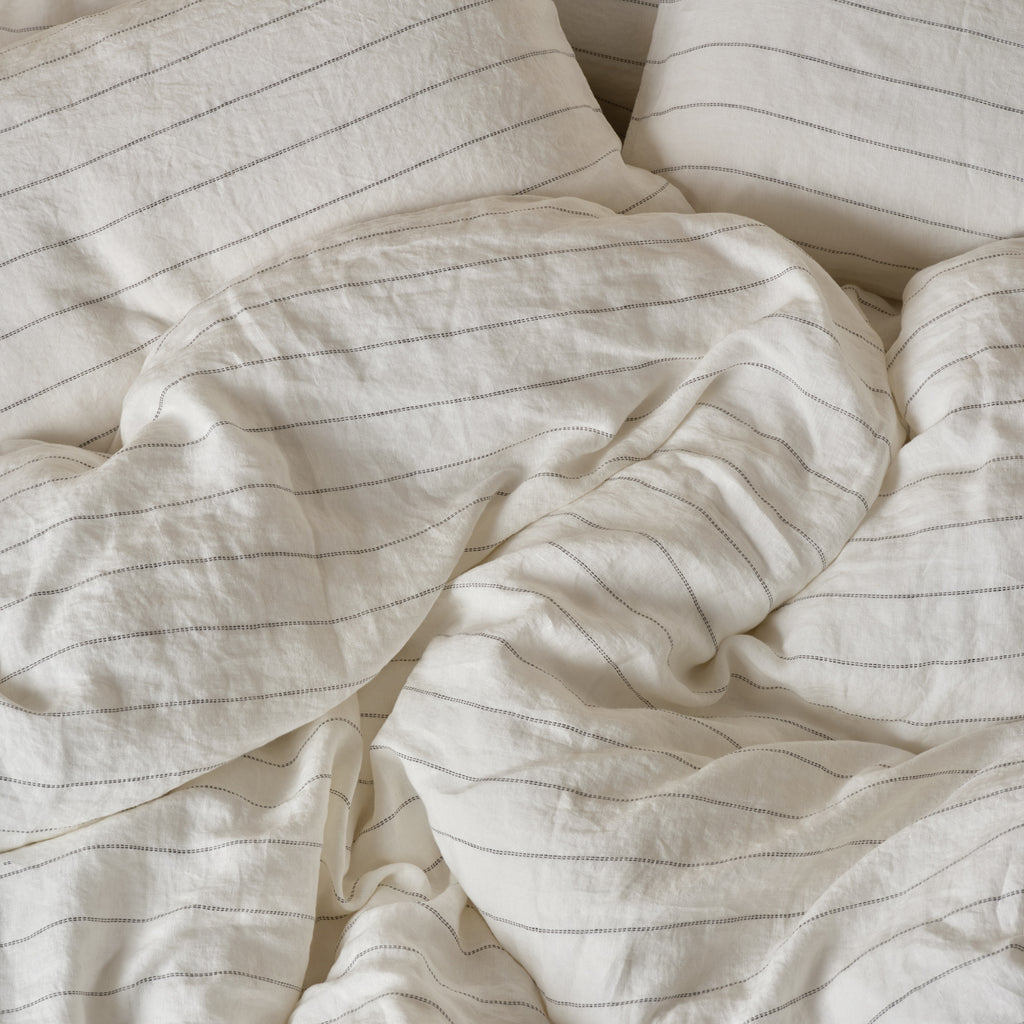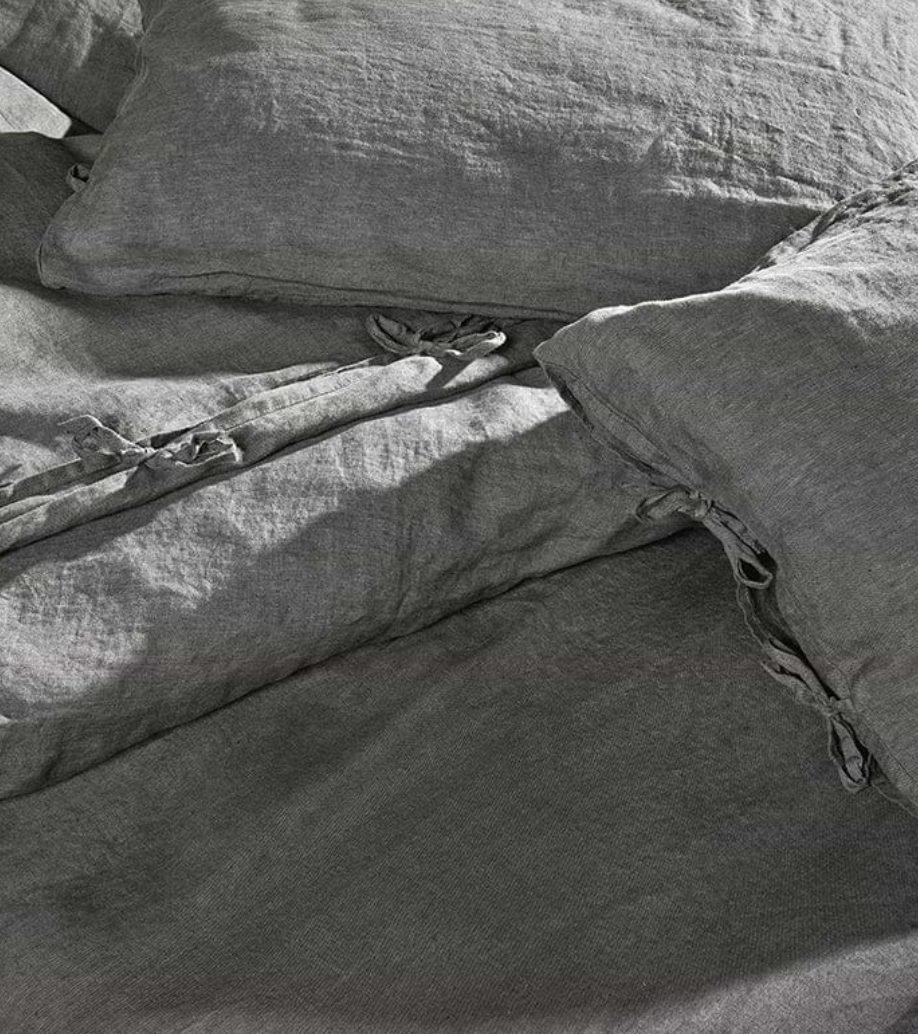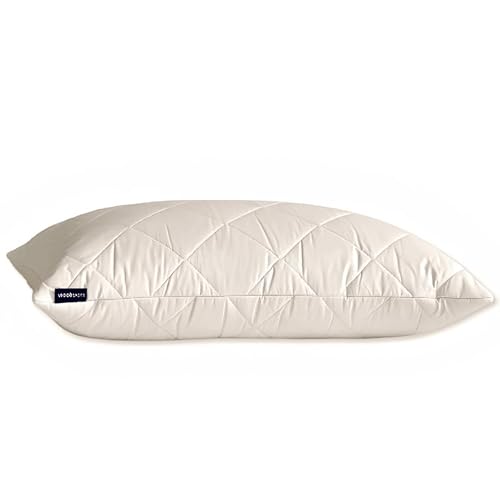5 Mistakes You're Making When Trying to Sleep in the Heat — And What to Do Instead
Getting a good night’s sleep during a heatwave can be tricky, but there are things you can do to prepare to make it a little easier

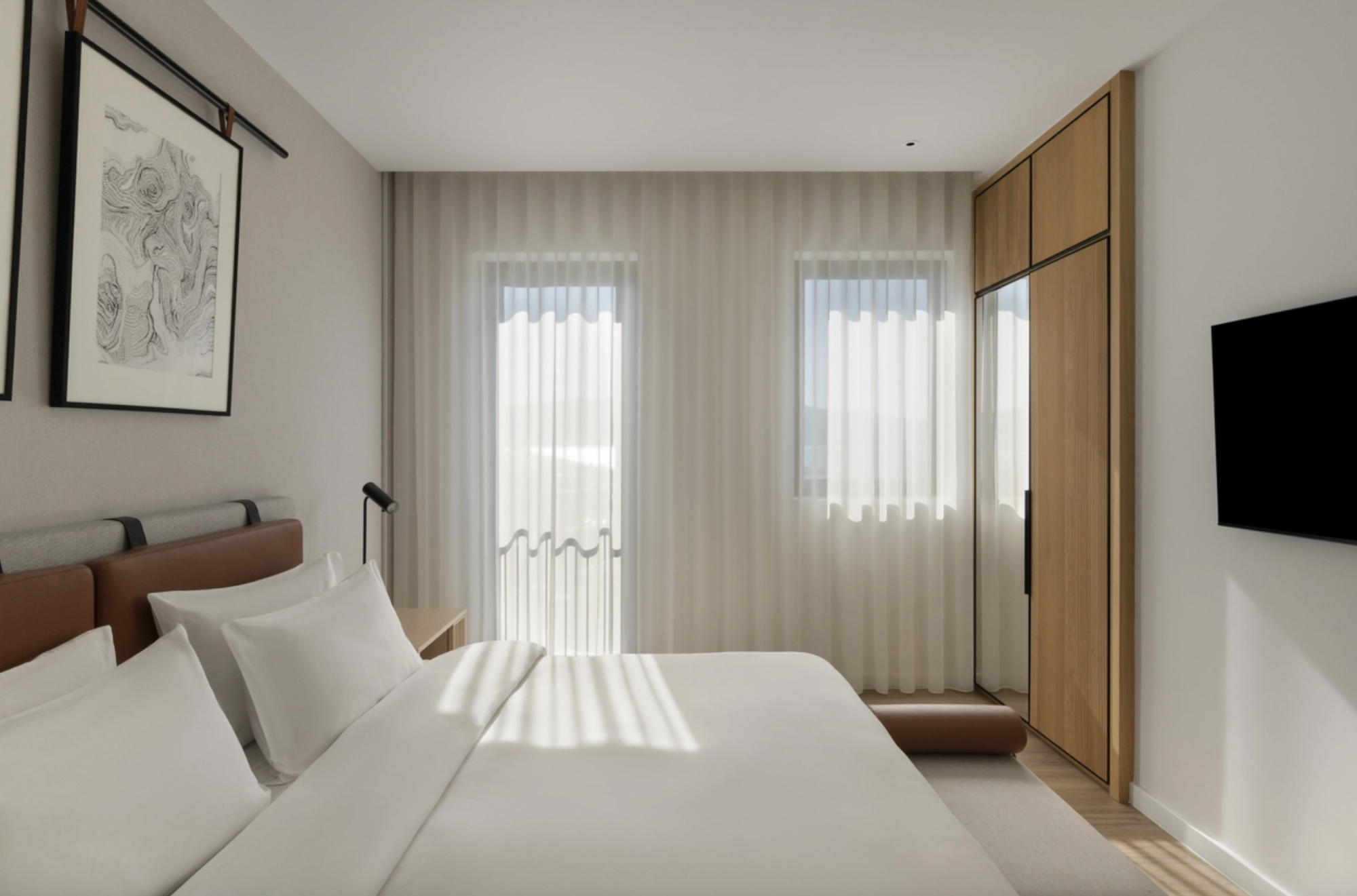
The Livingetc newsletters are your inside source for what’s shaping interiors now - and what’s next. Discover trend forecasts, smart style ideas, and curated shopping inspiration that brings design to life. Subscribe today and stay ahead of the curve.
You are now subscribed
Your newsletter sign-up was successful
Unless you live in a country or a state that boasts a warm climate all year round, it’s unlikely that your home has air conditioning. And that means that when a heatwave hits, it can make sleeping almost impossible, especially if you haven’t taken any precautions beforehand.
Naturalmat’s resident sleep expert, Christabel Majendie explains that “temperature is a significant influence on sleep. If the room is too hot, people often have trouble dropping off and get more fragmented sleep. To get to sleep, your core body temperature has to drop, and this coincides with a release of melatonin, the hormone that indicates to the body it's time for sleep. If the room is too hot, this process is interrupted.”
But letting the temperature get too high in the first place is just the first mistake you'll make. If you're struggling to sleep in the heat, these are the mistakes you might be making, and what you should do instead.

Naturalmat's resident sleep expert Christabel Majendie is on hand to reveal a selection of eye-opening insights and actionable strategies to aid a restful night sleep. Christabel is a dedicated sleep therapist who offers guidance and treatments for various sleep issues. With a deep passion for educating others on the best practices for achieving restorative sleep, she actively promotes the crucial role that sleep plays in maintaining overall health and well-being.
1. Opening the Windows
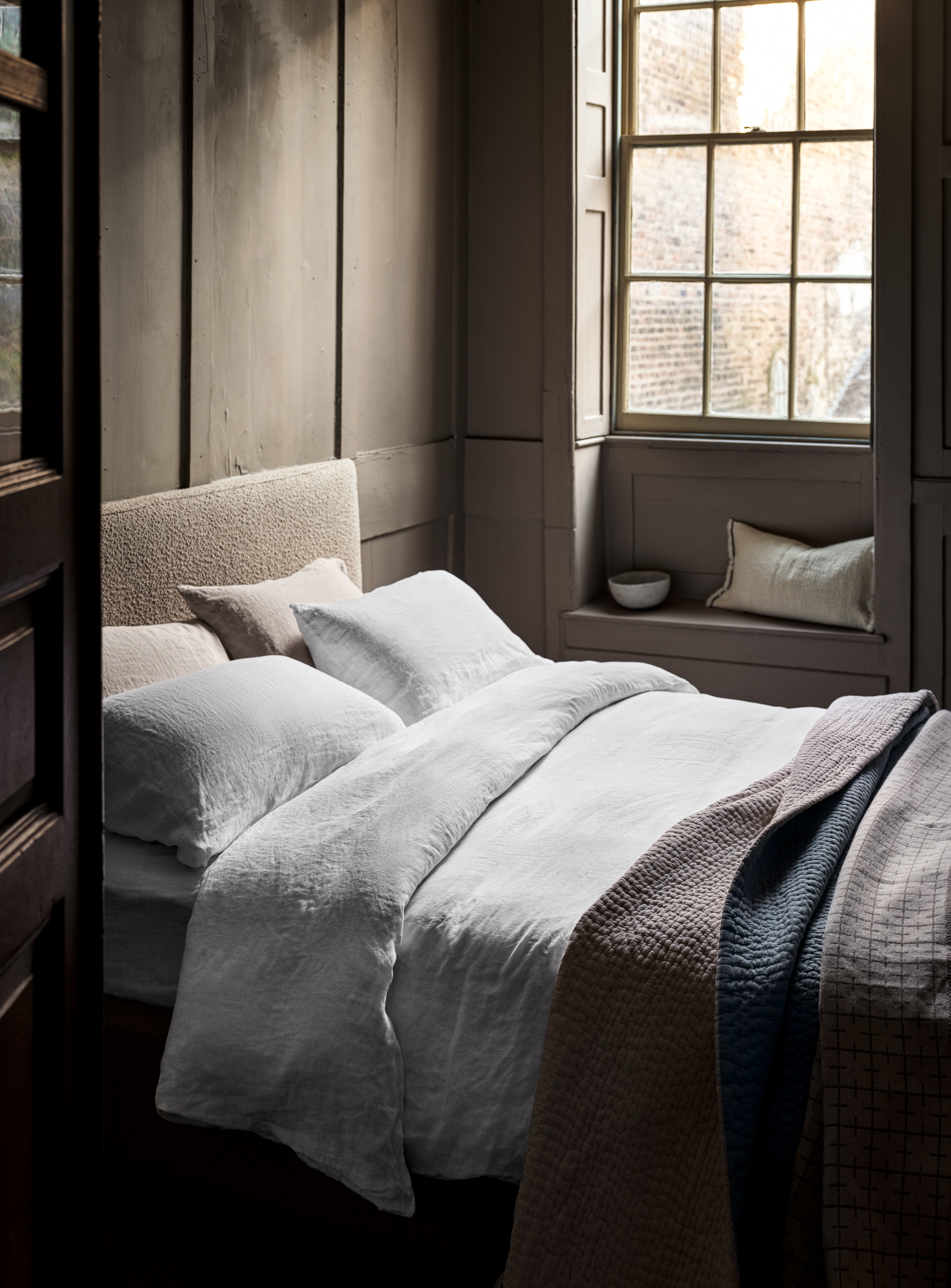
It might seem illogical, but keeping the windows closed might help keep temperatures lower during the day.
It can feel like a natural reaction to wake up in the morning and open the windows straight away to let some air in. However, when outside temperatures are high, this can be a detrimental thing to do. During a heatwave, it’s best to keep your windows and blinds shut during the day to maintain a cooler interior temperature, especially if you're a hot sleeper.
Kerry Davies, The Sleep Fixer for The Fine Bedding Company says "opening the windows during the day and closing them at night is a common mistake. Instead, if it’s safe to do so, open windows on opposite sides of your home and leave interior doors open at nighttime to encourage air flow. A fan placed near the window can help draw in cooler evening air.”

Kerry Davies, The Sleep Fixer Kerry is a seasoned sleep expert with nearly 14 years of experience dedicated to transforming sleep outcomes globally. As a certified Cognitive Behavioural Therapy for Insomnia (CBTI) therapist, she brings a wealth of expertise, including focused support for neurodivergence. Kerry’s approach spans diverse settings—from one-on-one coaching to partnerships with corporations, schools, and hotels—and she provides training and tailored strategies that benefit everyone seeking to improve their sleep.
2. Eating Large Meals in the Evening
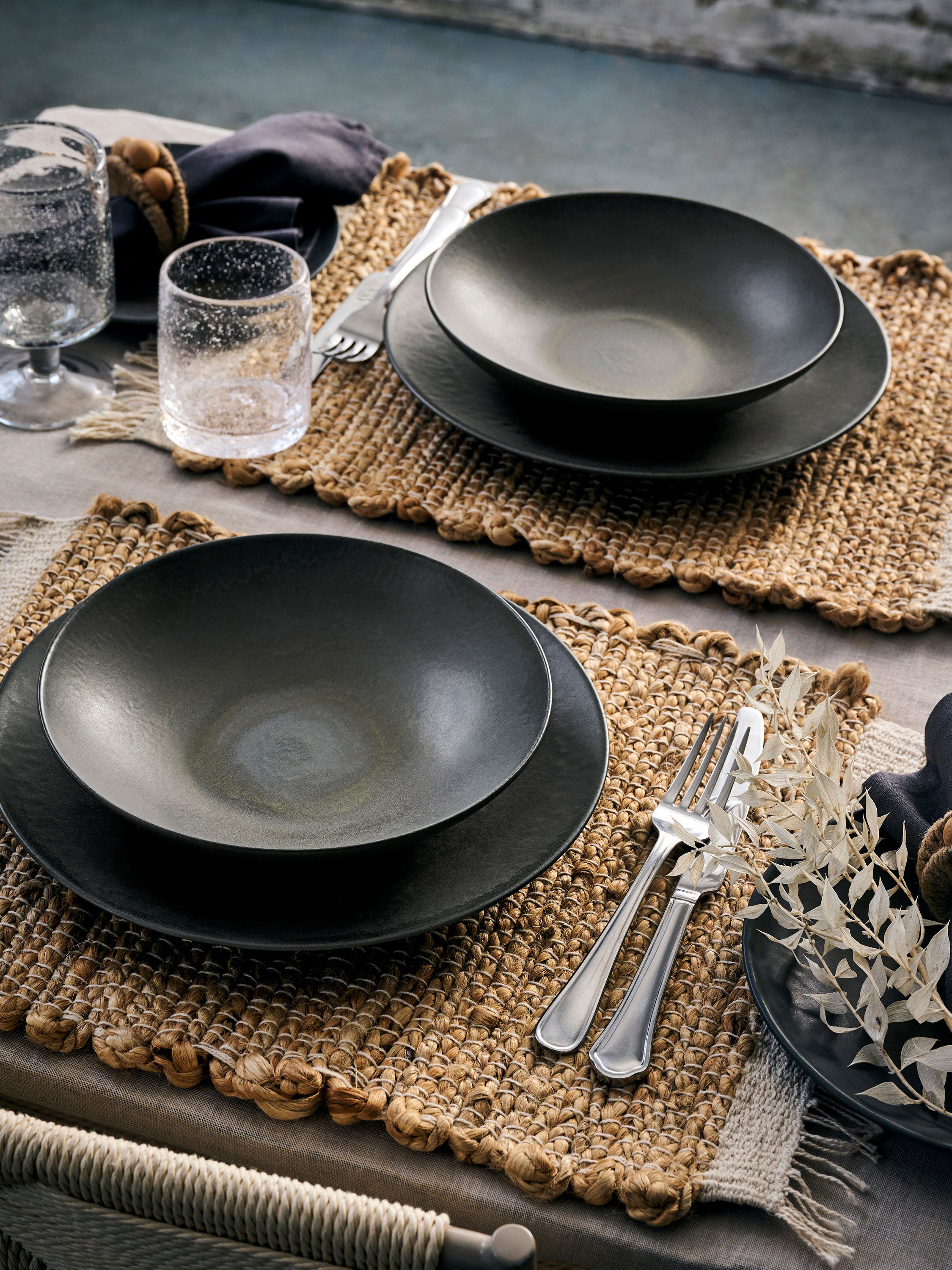
A big meal can raised your temperature while sleeping.
A common mistake that you may not think directly correlates with the quality of your sleep is how much you are consuming in the evening. “Digesting heavy meals raises internal heat and therefore disrupts sleep, especially in warmer weather,” explains Kerry.
“Opt for lighter dinners instead and try and eat a little earlier, so it allows your core temperature to gradually decline and go back to normal before you want to drift off to sleep.”
The Livingetc newsletters are your inside source for what’s shaping interiors now - and what’s next. Discover trend forecasts, smart style ideas, and curated shopping inspiration that brings design to life. Subscribe today and stay ahead of the curve.
3. Sharing a Duvet
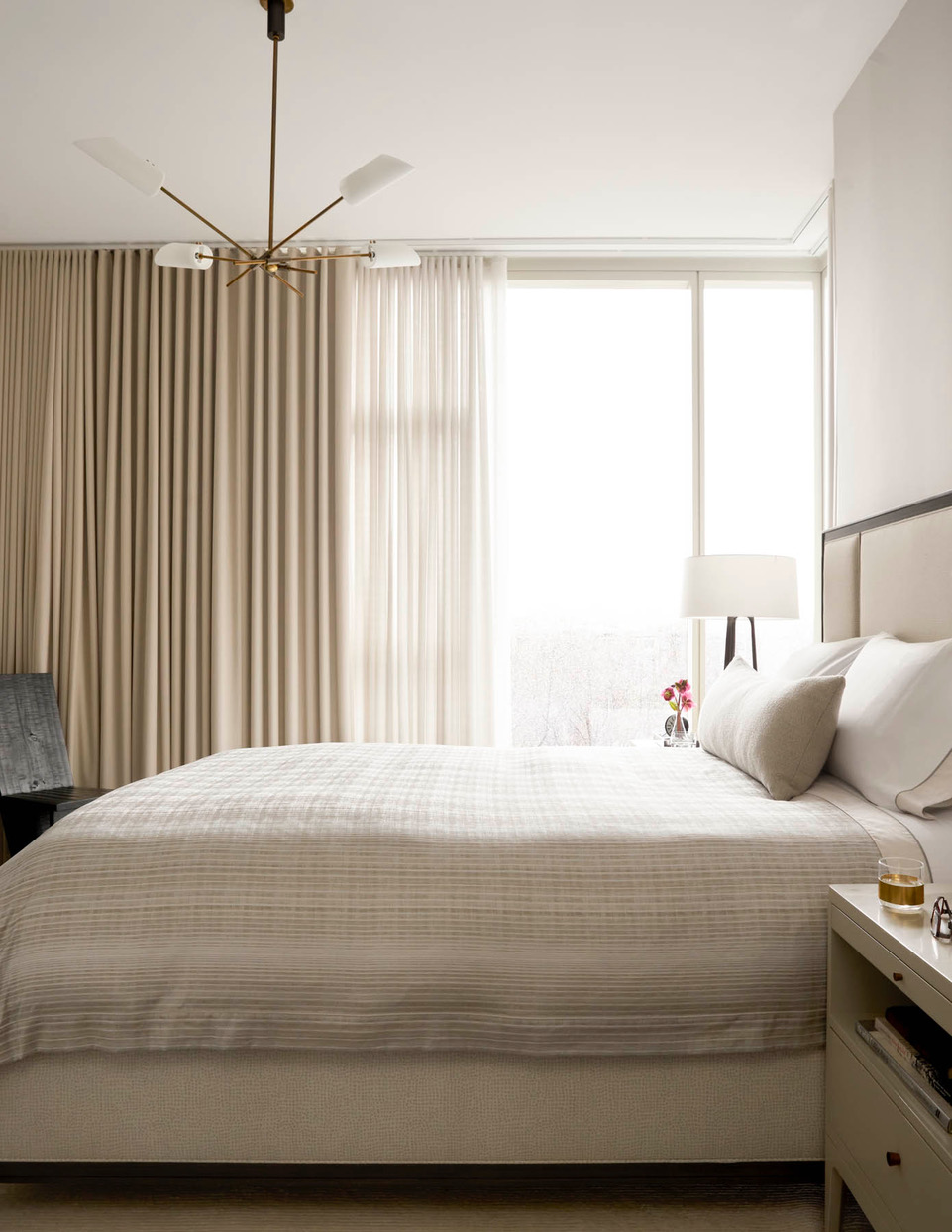
This Scandinavian hack will help you sleep better in the heat.
“Sharing a bed with a partner during a heatwave can increase the risk of overheating, with body heat further contributing to the warmth of your sleep environment,” says Thomas Høegh Reisenhus, sleep specialist & sleep counsellor for TEMPUR. In fact, if your partner is also struggling to sleep in the summer heat, you’ll likely keep each other up with the tossing turning and duvet flapping.
Thomas goes on to give an easy and practical solution, the Scandi sleeping method. "Having separate duvets can be the perfect compromise, allowing each bed partner to choose the bedding or tog rating best suited to them to achieve more tailored temperature control.” A 4.5 tog rating or lower is ideal for the height of summer.

Thomas has been a crucial member of the TEMPUR® product development team since 2007, helping to develop products that provide the ultimate level of comfort and support, all with the aim of creating the optimum sleep environment.
With an extensive knowledge of sleep, from sleep conditions to the ideal microclimate to ensure quality and quantity of sleep, Thomas has worked with a number of leading universities, hospitals, experts and elite athletes.
4. You've Chosen Manmade Materials
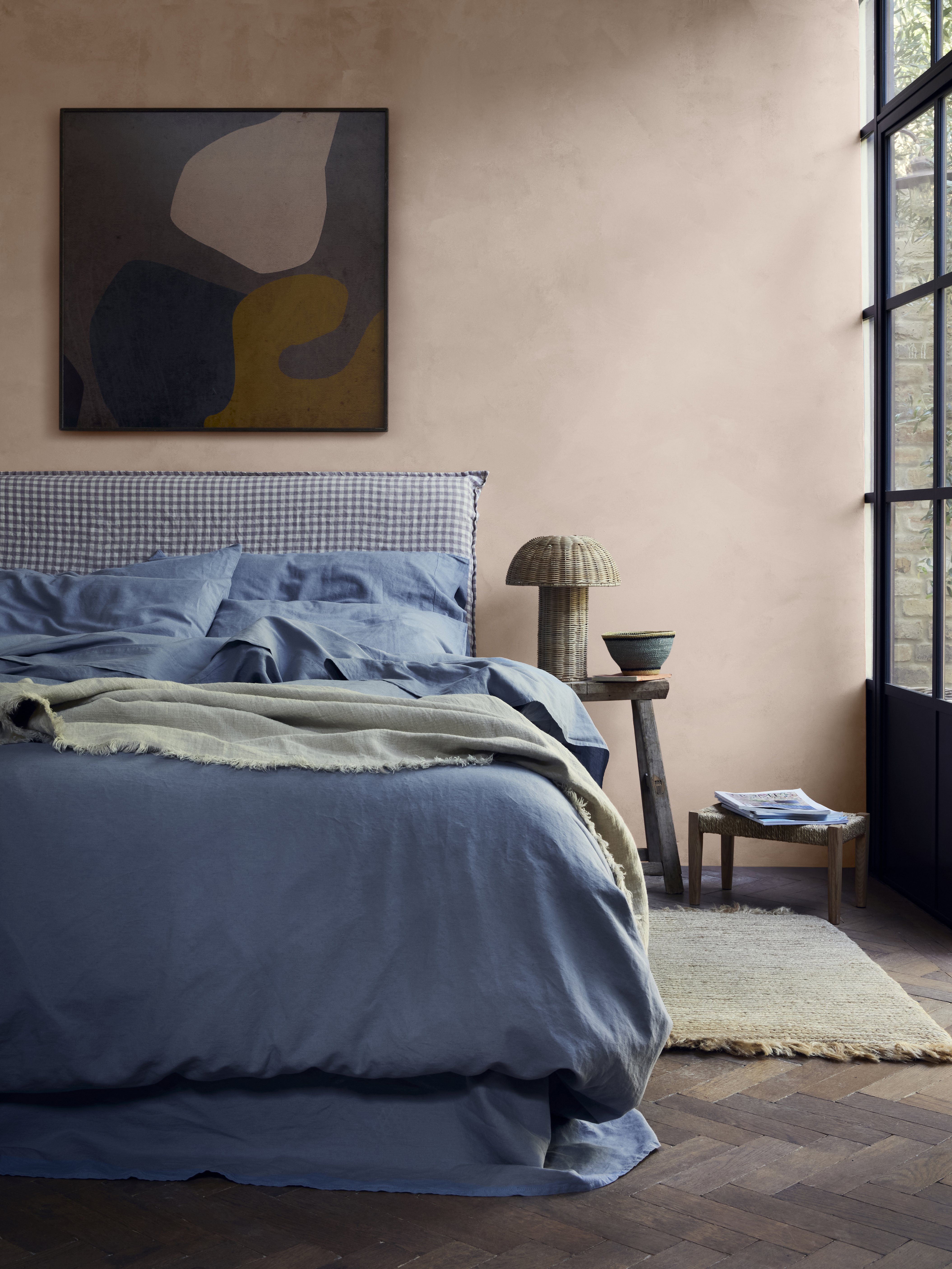
Natural materials, such as linen, are better for breathability and regulating temperature.
Synthetic materials like polyester may feel soft to the touch, but in reality they aren't going to be the smartest option for sleeping during a heatwave. Jessica Hanley, founder & CEO at Piglet in Bed says “bedding made from synthetic materials is a hard no from me. Instead, opt for bedding made from natural fabrics such as linen and cotton — they're soft, moisture-wicking, and help regulate your body temperature on warm nights."
So what are the best bedding materials? "Linen is exceptionally breathable thanks to its long natural fibers, which let air move freely through and around the fabric. It's also a great choice if you tend to overheat at night, as it can absorb up to 20% of its weight in moisture without ever feeling damp.”
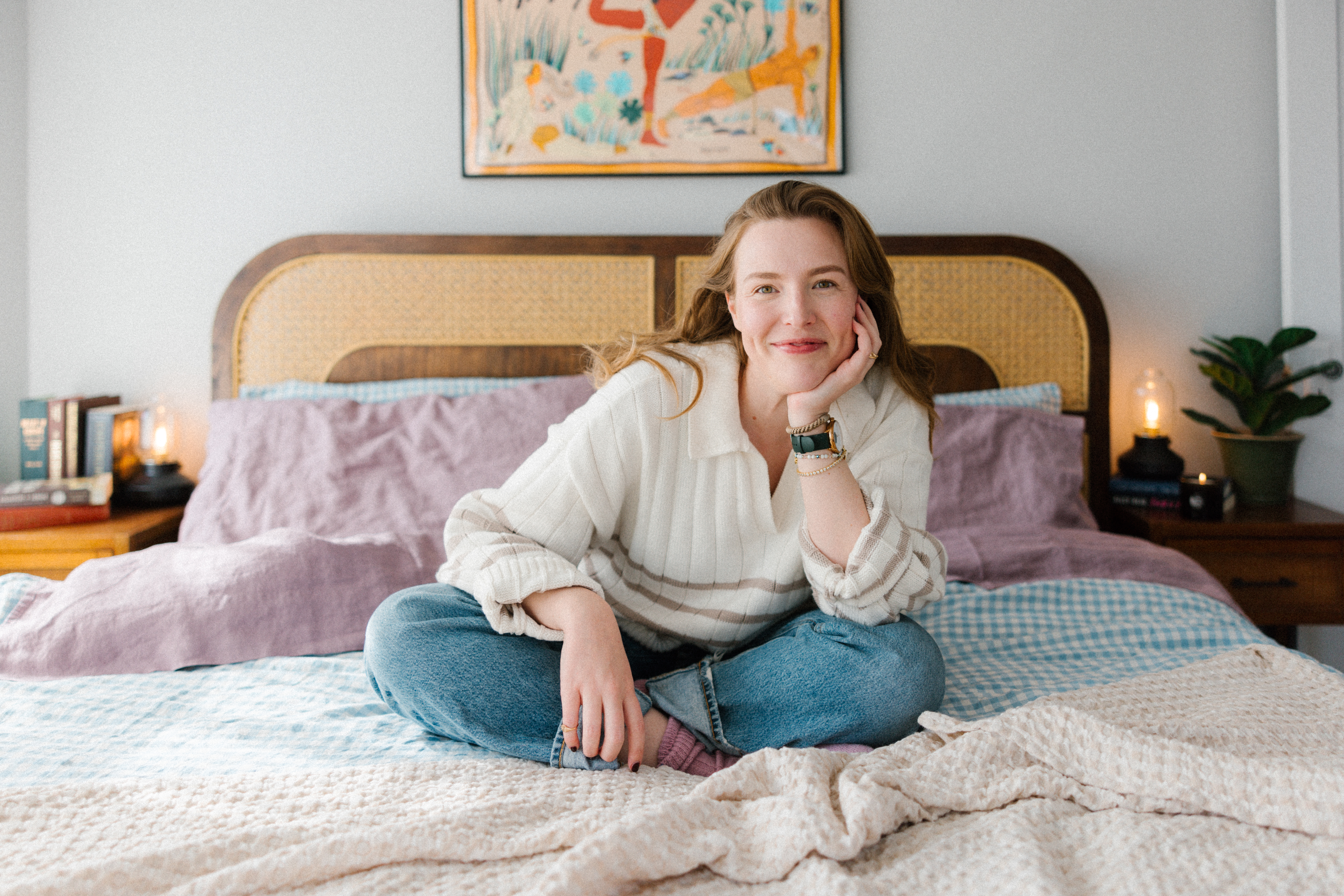
Jessica launched Piglet in Bed in 2017 from her mother's garden shed in rural West Sussex with her fingers crossed that she wasn’t alone in looking for high-quality basics for her home that are as cosy as they are beautiful. Starting small with linen duvet covers and pillowcases in a few calming colours, we have since grown the brand to include much more bedding (including sustainably-sourced cotton), sleepwear, table linens, gifts and other natural homewares.
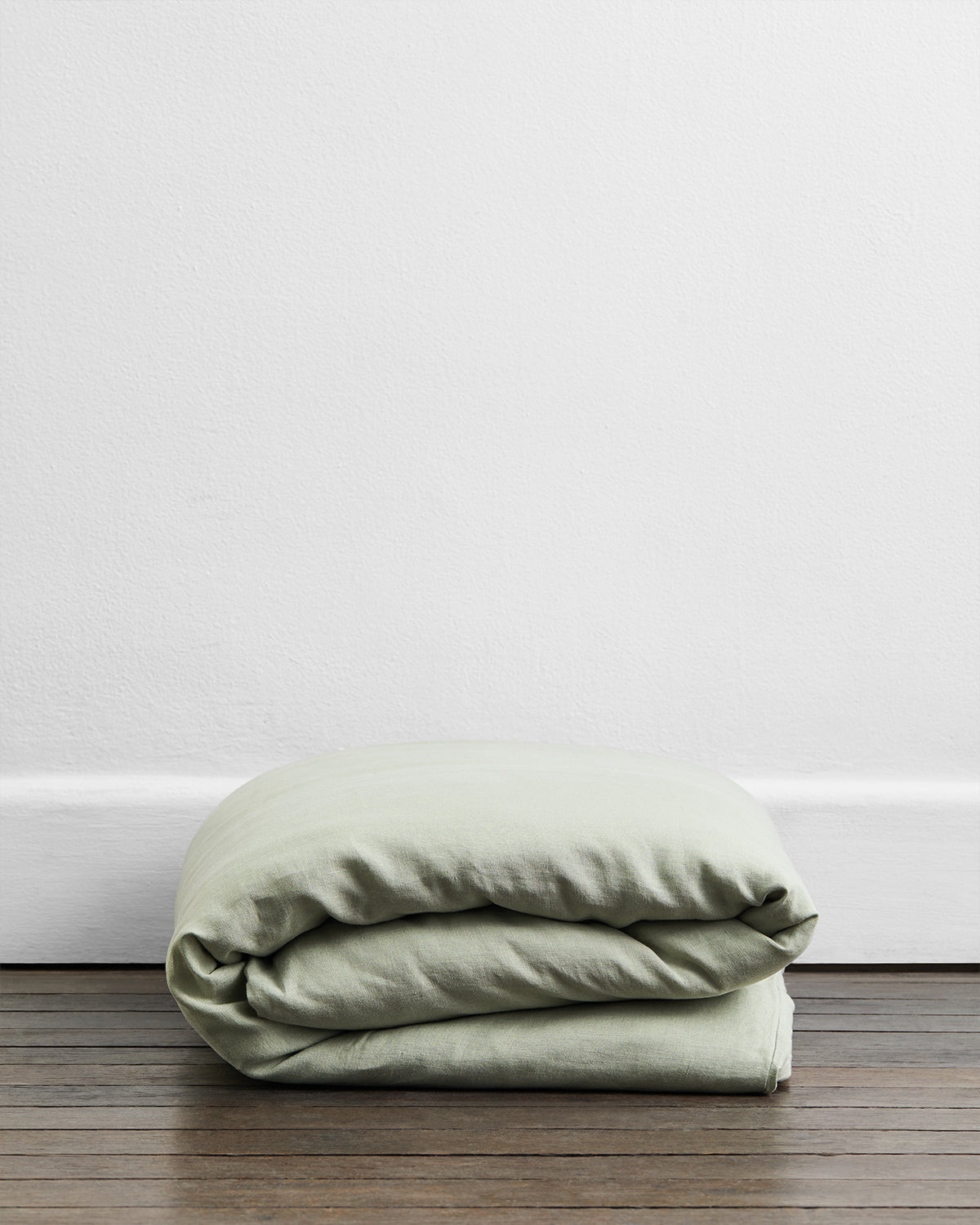
Bedthread has a wonderful range of eco-friendly linen duvet sets that are packaged in a linen storage sack, which makes for a lovely finishing touch. Linen is a natural insulator, keeping you cool in summer and warm in winter – so you can sleep deeper for longer.
5. Ignoring Your Pillow
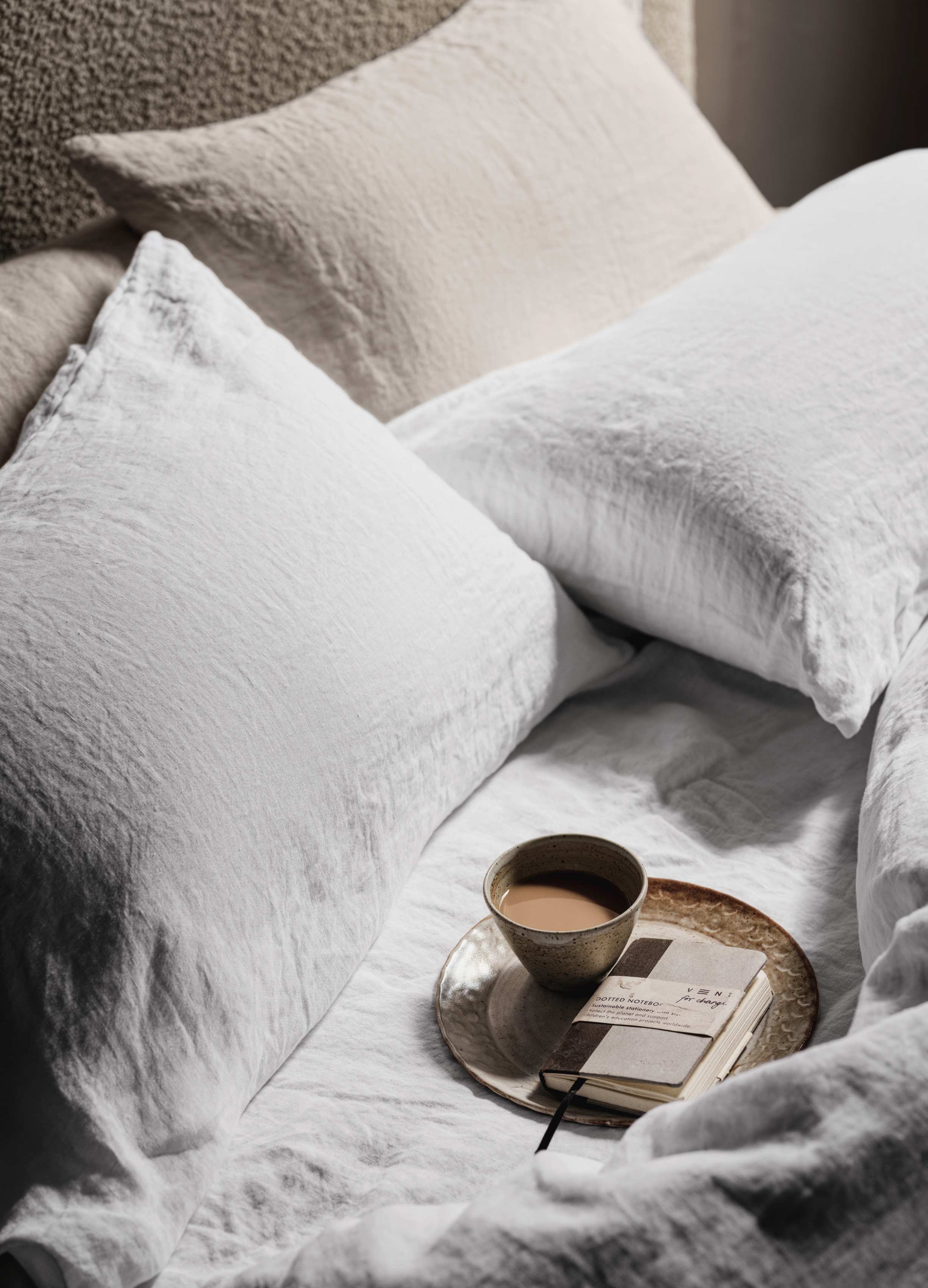
Your head is a hot zone, so needs attention.
How can your pillow make a difference to the quality of your sleep in a heatwave? The head and neck are major heat zones, so you want to opt for a pillow or pillow protector with breathable or temperature-responsive materials.
“An organic wool pillow will disperse heat as necessary and is a firmer option, for those that prefer medium, we would recommend a pillow mixed with organic wool and duck down as this allows for good air flow. However, if you’re someone who prefers a soft pillow, goose down is a great option that offers comfort without compromising on temperature-controlling properties,” explains Mark Tremlett, founder at Naturalmat.
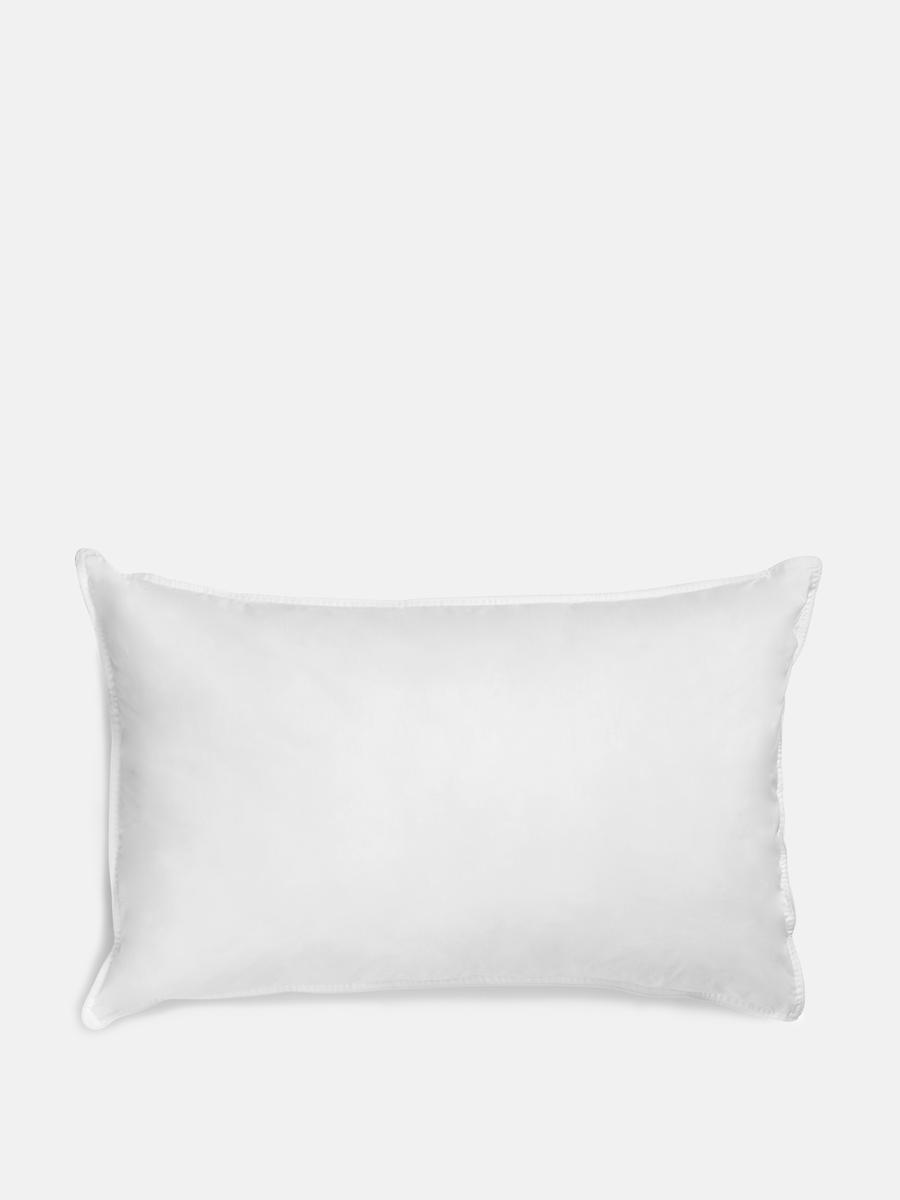
Soho Home pillows are filled with soft, premium quality Asian goose down and feathers. The exact composition is white goose down 60% down 40% feather, 100% cotton casing. Having good quality pillows will undoubtedly effect the overall quality of your sleep.
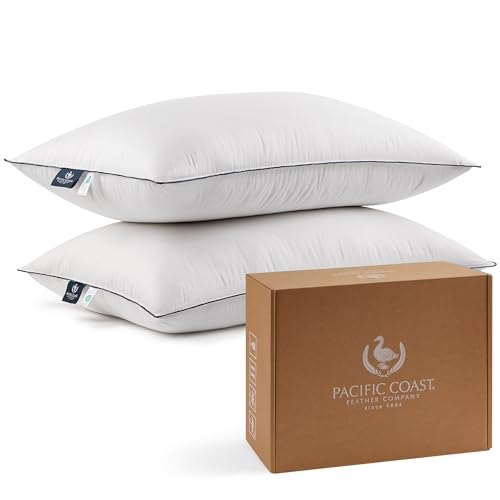
Get hotel comfort and breathability at home. Pacific Coast have created a naturally down-proof fabric without the traditional use of other coating by precisely weaving the highest-quality cotton threads. Pacific Coast pillows are also moisture-wicking, ensuring a cozy and restful sleep.
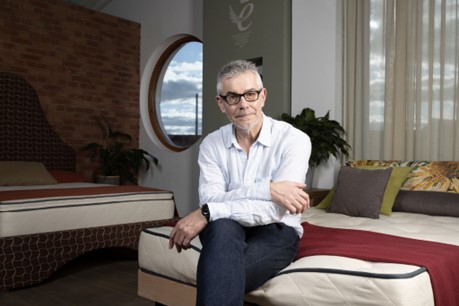
Mark Tremlett is one of the original champions of the planet in the British manufacturing industry having begun hand-making beds, mattresses and bedding from entirely natural and organic materials over 20 years ago from the company’s Devon workshop. In 2023 Mark’s pioneering efforts were recognised when Naturalmat became the first British bed company to be awarded B Corp status - considered to be sustainability’s “gold standard”.
FAQS
How Hot Is Unsafe to Sleep?
The ideal temperature for sleep is said to be around 60-65°F, and you should actively look for ways to keep your bedroom at that desired temperature. Anything above 75°F can majorly impact the quality of your sleep.
What Do You Wear to Bed When It’s Hot?
Believe it or not, sleeping naked is going to make you feel hotter. During a heatwave, the best thing to wear is anything light and loose fitting. "Switch to lightweight, breathable fabrics like cotton or linen," says Kerry. Pyjamas made out of natural fibres are your best bet for getting a good night’s sleep.
Should I Sleep Downstairs in a Heatwave?
If you have a comfortable sleeping set up downstairs, then this may be the best option for you in a heatwave. Heat rises, so the upstairs of your house is going to be significantly warmer than the downstairs.

Becca Cullum-Green is a freelance interiors content creator and stylist. She fell in love with interiors when she landed her first job as an editorial assistant at a leading UK homes magazine fresh out of university. You can find her renovating her 19th-century cottage in the Suffolk countryside, consciously trying not to paint every wall with Farrow and Ball’s ‘Pitch Black’. Her signature style is a mix of modern design with traditional characteristics. She has previously worked for House Beautiful, Grand Designs, Good Housekeeping, Red, Good Homes and more.
